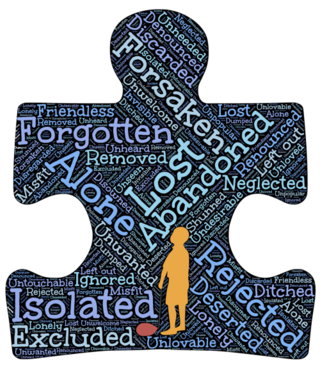Ghosting
Ignored or Rejected?
Some options for the ghosted and the roasted.
Posted December 21, 2019 Reviewed by Lybi Ma

You’ve been ignored or rejected a lot. It’s hard to go through life feeling that way. As usual, there are no magic pills but maybe one or more of these ideas will help:
People ignore and reject other people for many reasons:
- They’re busy
- They’re egotistical
- They have other priorities
- You and that person are mismatched
Yes, it’s possible that you’re often ignored and rejected because you’re universally deemed detritus or worse. But more often, one or more of the above is at least partly at play: It certainly helps you soldier on if you proceed under that assumption.
Letting ‘em know
Perhaps it would help if you didn't just lie down and take it. For example, when someone doesn’t respond to your email, how about a not-accusatory follow-up? Here’s a sample.
Subject line: Following up.
Joe, I emailed you about (insert topic) three days ago and didn’t get a response. Perhaps it slipped through the cracks, so I’m following up.
Maybe it is time to change
No, you can’t change things about yourself that are likely formed by your genes, upbringing, and early peers, but we can improve ourselves at least moderately. Would an honest look inward and at the feedback you’ve received suggest you should work on one or more of these?
Being less egotistical, listening better, asking caring questions, offering to help.
Talking less. If you’re prone to missives that extend beyond a minute, you risk being viewed as a Billy Blowhard or Chatty Cathy.
Looking better. A "1" can’t be turned into a "10" but, without undue effort, is your posture good? Are you dressing and wearing a hairstyle that brings out the best in you? Should you consider cosmetic surgery? I know a number of people for whom cosmetic surgery improved their life, professionally and personally. Don’t know what if anything to change? Asked a trusted friend or relative.
Being more modest or more assertive. No one likes a braggart or show-off. Conversely, if you’re a milquetoast, it’s easy to judge you as someone who can be ignored or even walked on. And if your track record suggests that waiting to be approached doesn’t work well, should you invite a potential friend for coffee or a walk? Is there some other specific thing you'd like to be more assertive about?
Being smarter or more knowledgeable. Should you hang around smarter people—it tends to rub off. Or take a course in critical thinking, for example, Effective Problem Solving? Should you read more broadly? That would make you more worthy of respect by people worth caring about: You’ll be more of a thinker than an ideologue. For example, should you read the New York Times on the Left and the National Review on the Right?
Less of a procrastinator. If people can’t count on you to do what you promise, they’re more likely to, in the future, ignore or reject you.
Be more positive. Yes, much in the world deserves criticism but airing it too often risks your being rejected en toto. The more a person deviates from moderate positivism, the greater the risk of opprobrium.
Take that chip off your shoulder. This is a corollary of the previous item. Some people go around looking to take offense, to play gotcha, to criticize when the wiser you would know that only some battles are worth fighting.
Change your environment. Perhaps you’re better off as a bigger fish in a less selective pond, for example, a lower-powered workplace or an activity that attracts more normal people than braniacs, for example, a book club that reads popular fiction rather than philosophy. Another example: I’m a good pianist but if I auditioned for America’s Got Talent, I’d be rejected before the first round.
The solo option. If you’ve read all this yet feel pessimistic that its ideas would sufficiently help, should you consider good old-fashioned self-acceptance? That for you, the solo option is wise? Indeed many people, even those who are well-liked, are happier being mainly alone because that gives them more control over their existence: what to do, when and how. I write about this in The Recluse Option.
I read this aloud on YouTube.




